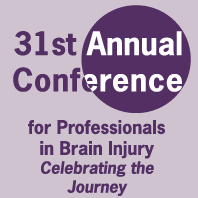
Thank you to our 31st Annual Conference Partners:



Thank you to our Diamond Sponsors:


Thank you to our Gold Sponsors:







Thank you to our Silver Sponsors:









Thank you to our Bronze Sponsors:
A Chance to Grow
Accessible Space
Accurate Home Care
ACR Homes
AmRamp
Beyond Barriers
Community Involvement Programs
DHS-Moving Home Minnesota
Dungarvin Minnesota LLC
Epilepsy Foundation of Minnesota
Essentia Health/Miller Dwan Rehabilitation
Glesener's INC
Handi Medical Supply
IMED Mobility
Integrity Living Options, Inc.
Karcher Foser Services, Inc.
Lutheran Social Service of Minnesota
Mary T
Mom's Meals
Opportunity Partners
Provide Care Inc.
Restart
TBI Residential and Community Services
True Friends
UCARE
Vinland National Center
Wing House
Sponsorships are available for our upcoming 31st Annual Conference. Call Jarett at 612-378-2742 or 800-669-6442, or click here to e-mail.
2277 Highway 36 W, Ste 200, Roseville, MN 55113
Phone: 612-378-2742
Toll Free: 1-800-669-6442
Fax: 612-378-2789
E-Mail:info@braininjurymn.org
2016 Annual Conference - Friday Schedule
Presentations and Downloads • Keynotes •
Friday Conference Schedule
8 - 9 a.m. - Registration and Exhibits Open
- Exhibits are open daily 8 a.m. to 3:30 p.m.
8:45 - 9 a.m. - Opening Remarks
9 - 10:30 a.m. - Keynote Address
- Resilience: Bouncing Back after Brain Injury

Jeffrey S. Kreutzer, PhD, ABPP, FACRM, Rosa Schwarz Cifu Professor of Physical Medicine and Rehabilitation, and Professor of Neurosurgery and Psychiatry, Virginia Commonwealth University – Medical Center; Director, Virginia TBI Model System of Care
Traumatic brain injury often causes dramatic life changes. Some survivors do not fare well and face seemingly insurmountable challenges in trying to live independently, work and maintain positive relationships. Some are burdened with emotional distress in the form of anxiety and depression. On the other hand, a good number of survivors are resilient. They feel good about their lives despite having severe injuries and facing great challenges. They are able to find and keep jobs, live independently and maintain supportive relationships. This presentation will focus on resilience and identifying definitions of resilience and characteristics of resilient survivors. It will also detail strategies and empirically-based clinical interventions for improving resilience.
10:30 - 11 a.m. - Break and Exhibits Open
11 a.m. - 12:15 p.m. - Breakout Session I
- Ambiguous Loss and Identity Reformulation after Brain Injury
Jeffrey S. Kreutzer, PhD, ABPP
Brain Injury often brings about a variety of unwanted life changes, uncertainty, and confusion for survivors and their family members. Adding to uncertainty are questions that emerge about the survivors' prognosis as well as the personality and identity changes that often follow injury. Some wives have been known to say. "I'm married to a stranger," or "I'm married, but have no husband." This presentation will explore the concept of ambiguous loss, a term initially applied in the field of family therapy. Family therapists have proposed that uncertainty about change and the family's future causes great distress and difficulty in adjusting to change. The writings of survivors and caregivers will be used to illustrate ambiguous loss and the post-injury challenges that often follow. Discussion will also focus on strategies to help family members appreciate common injury-related changes, identify situational positives, and learn to live with and like a person who may seem like a stranger.
- The Americans with Disabilities Act and Employment
Cindy Held Tarshish, ADA Minnesota Program Manager, Metropolitan Center for Independent Living
This workshop will discuss and explore many aspects of employment and the ADA. Topics include: ADA overview, disability definition, interviewing and medical inquiries, disclosure, reasonable accommodations,undue hardship, resources and more. Questions are encouraged.
- Brain Injury and Homelessness
David Katzenmeyer, Outreach Program Supervisor; Kris Helgeson, Project Recovery Drop In Center Supervisor; Geoff Meyer, Homeless Services Division Director, People Incorporated Mental Health Services
Our presentation will focus on providing an overview of the culture of homelessness and street homelessness; the unique challenges faced by those experiencing both brain injury and homelessness; and techniques and strategies for engaging with clients experiencing homelessness and brain injury.
- A Whole Health Approach to Transitional Rehabilitation
Nancy Hildreth, PTRP Director; Hillari Olson, Physical Therapist; Aubrey White, Speech Pathologist; Missi Wendt, Recreational Therapist, Minneapolis VA Health Care System
This session will cover the integration of whole health concepts into the Polytrauma Transitional Rehabilitation Program (PTRP) within the Minneapolis VA Health Care System. We will discuss integrative health components, such as the Personal Health Inventory, mindfulness strategies, movement therapies, and non-pharmacological approaches to pain management.
- Supporting Language and Cognition for Adults with Chronic Aphasia Through Pictures: What We Know and What We Don't
Jessica Brown, Assistant Professor, University of Minnesota-Twin Citie
The research regarding visual supports for adults with aphasia and clinical practice often misalign due to the workplace demands for rehabilitation professionals. This talk will focus on reviewing the current literature and providing recommendations for bridging the gap between research and therapeutic techniques highlighting the current challenges both sides face.
- The Burden of Care Following Hospitalized TBI
Leslie Seymour, Epidemiologist; Anna Gaichas, Biostatistician; Jon Roesler, Epidemiologist Supervisor; Mark Kinde, Director Injury and Violence Prevention Unit, Minnesota Department of Health
The Minnesota All Payers Claims Data provides all medical reimbursed claims submitted to the Minnesota Department of Health by third party payers. This data set along with the Minnesota TBI Registry will be used to describe the clinical services utilized and the true burden of hospitalized TBI in Minnesota.
12:15 - 1:15 p.m. - Lunch
1:15 - 2:30 p.m. - Breakout Session II
- Prevention of Recurrent Stroke: An Evidence-Based Approach
Michelle Ullery, APRN, CNP, DNP, CWOCN-AP; Korinne Novak, APRN, CNP; Mark Ringo, APRN, CNP, DNP; Uche Amajuoyi, APRN, CNP, Courage Kenny Rehabilitation Institute Part of Allina Health
Each year in the United states, 795,000 people have a stroke; nearly one in four are people who have had a previous stroke (CDC, 2105). This session utilizes case studies to explore the practical application of evidence-based research to prevent stroke in patients with a prior stroke in the post-acute setting.
- A Second Chance: Expungement and Strategies for Overcoming Poor Criminal and Rental History
Paul Ziezulewicz, Staff Attorney; Meghan Scully, Staff Attorney, Southern Minnesota Regional Legal Services
Brain injuries can affect development of temperance, judgement, and impulses which may contribute to criminality. This session will explore how lack of housing can relate to these injuries; negative criminal and rental records as significant barriers to stable employment or housing; and how expungement and other legal strategies may assist TBI clients in need of a second chance.
- Concussion & Return to Learn: Developing a Plan That WORKS
Deb Williamson, Statewide School TBI Specialist, Minnesota Low Incidence Projects; Kari Lehman Briner, LICSW, Coordinator, Pediatric Brain Injury Program, Hennepin County Medical Center; Jessica Brown, Assistant Professor, University of Minnesota Twin Cities
The topic of childhood concussion and Return to Play has seized headlines since the Minnesota Concussion Law was enacted, but the equally important topic of Return to Learn is finally getting the respect it deserves. Learn how to create a comprehensive plan that will address student needs, accommodations, school services and supports.
- Sexuality and Brain Injury
Robert Karol, PhD, ABPP, CBIST, Vice President of Brain Injury Services, Welcov Healthcare
This talk will overview selected topics in dating and then focus on issues in sexuality after brain injury. The presentation will cover issues persons with disabilities face in expressing sexuality and discuss how professionals can help.
- I'm Alive: Courage, Hope, and a Miracle
Duke Pieper, Student, Bowing Green State University
Duke Pieper, an elite high school hockey player, suffered a cavernous hemangioma. He entered his first of multiple surgeries with a five percent chance survival rate. In his presentation, "I'M ALIVE: COURAGE, HOPE, AND A MIRACLE," Duke recounts his courageous struggle to survive, battling through months of paralysis, massive nerve damage, and countless setbacks. He not only survived, but now thrives; his incredible story is how to never give up and live life fearlessly.
- It's the Little Things – The Importance of the Details in Providing Positive Supports and Person Centered Planning
Jodi Greenstein, MSW, LICSW, CBIS, Supervisor, Behavioral Health Services; Sara Nuahn, MSW, LICSW, CBIS, Behavior/Positive Support Professional; Jennie Lee, CBIS, Behavior/Positive Support Analyst; Beth Childs, Behavior Positive Support Analyst, Courage Kenny Rehabilitation Institute
The importance of the details should not be overlooked in our work with the individuals we serve. This presentation will address the importance of the details when blending positive supports and person centered planning. Practical strategies for best practices will be provided in this panel discussion session.
2:30 - 2:45 p.m. - Break and Exhibits Open
2:45 - 4 p.m. - Plenary Session
 Living through the unthinkable every day: The differing perspectives of a Mother and Father
Living through the unthinkable every day: The differing perspectives of a Mother and FatherBrandon Verzal, Tiffany Verzal
Since their daughter Alexis was the victim of abusive head trauma at daycare in 2008, Brandon and Tiffany Verzal have been tireless advocates for brain injury awareness, the importance of rehabilitation and child abuse prevention. Alexis's assault occurred at 14 months old, and was followed with seven years and thousands of hours of intense, specialized therapy. Her recovery has gone significantly beyond anything doctors ever imagined, but severe deficits remain that will impact her for the rest of her life.

